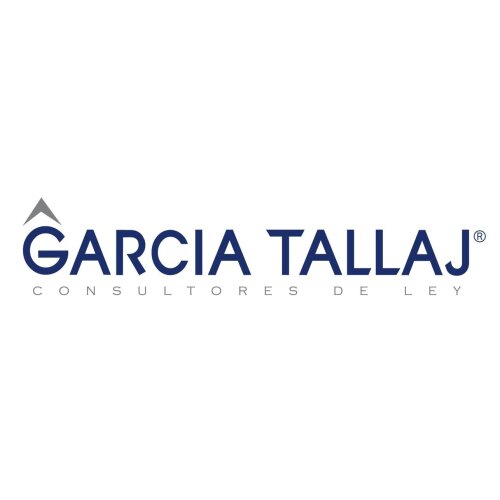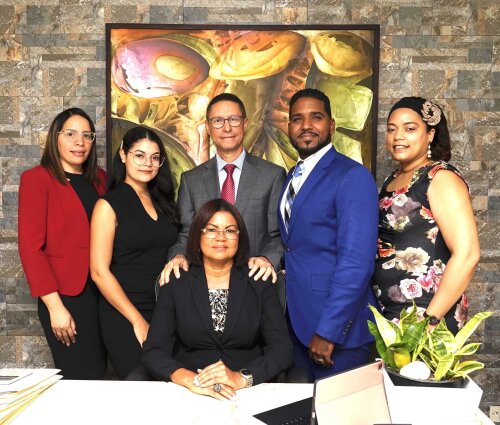Best Landlord & Tenant Lawyers in Sosua, Cabarete
Share your needs with us, get contacted by law firms.
Free. Takes 2 min.
Free Guide to Hiring a Real Estate Lawyer
List of the best lawyers in Sosua, Cabarete, Dominican Republic
About Landlord & Tenant Law in Sosua, Cabarete, Dominican Republic
Landlord and tenant relationships in Sosua and Cabarete, located on the northern coast of the Dominican Republic, are governed by national civil laws as well as local practices. This popular region, known for its vibrant tourism and expatriate communities, sees a variety of rental arrangements — from short-term vacation rentals to long-term residential leases. Understanding landlord and tenant law here is essential because the rules may differ from those in other countries and much of the documentation is in Spanish. Dominican legal processes and protections apply to both foreign and local landlords and tenants, but navigating them requires knowledge of local practices, language, and the specifics of real estate law.
Why You May Need a Lawyer
There are several common situations where legal assistance is highly recommended in landlord and tenant matters in Sosua and Cabarete:
- Drafting or reviewing rental or lease agreements to ensure all parties' rights and obligations are protected. - Resolving disputes over rent nonpayment, property damage, or termination of a lease. - Navigating eviction proceedings, which require adherence to Dominican legal procedures. - Understanding the specific rights and responsibilities for foreigners renting or leasing property. - Handling security deposit disputes and clarifying maintenance obligations. - Interpreting or translating legal documents from Spanish to another language. - Dealing with co-ownership or subletting issues. - Navigating issues with property management companies or condominium associations. - Negotiating lease renewals or early terminations. - Addressing problems with landlord entry, utilities, or unsafe living conditions.
Engaging a lawyer experienced in Dominican landlord and tenant law is essential to ensure your interests are protected and to avoid costly mistakes due to unfamiliarity with the system or language barriers.
Local Laws Overview
In the Dominican Republic, leases are primarily governed by the Civil Code, specifically Articles 1667 and following, and by Law 4314 which addresses procedures for rental and eviction. Key aspects relevant to Sosua and Cabarete are:
- Lease agreements can be verbal, but written contracts are highly recommended for clarity and enforcement. - There is no mandatory standard lease form, but agreements should specify rent, duration, responsibilities, termination conditions, and deposit terms. - Security deposits are common, usually the equivalent of one or two months' rent, and should be returned at the end of the lease minus any legitimate deductions. - Evictions require proper legal notice and must go through the local courts; self-help evictions are illegal. - Rent increases are generally subject to agreement between the parties; there is no rent control but excessive increases may be challenged in court. - Foreigners have the same rights as locals but should ensure contracts are legally valid and translated if necessary. - Landlords must provide habitable premises and respect the tenant's privacy. - Tenants are responsible for normal care, timely rent payments, and notifying the landlord of major issues. - If the property is sold, the new owner must respect the existing lease under most circumstances. - Condominium rules may add additional regulations for tenancies in apartment complexes.
Frequently Asked Questions
What should a rental agreement in Sosua or Cabarete include?
A rental agreement should detail the parties involved, the exact property address, amount and schedule of rent payments, security deposit terms, lease duration, maintenance responsibilities, penalties for late payment, renewal provisions, and termination procedures. It is best to have the agreement in writing, signed by both parties, and preferably notarized.
Do I need my rental agreement translated to Spanish?
While not strictly required, it is advisable to have at least a Spanish version since Dominican courts and officials work in Spanish. Bilingual contracts help avoid misunderstandings and ensure enforceability.
Can a landlord evict a tenant without a court process?
No, landlords cannot lawfully evict tenants without going through the court process. Attempting to remove tenants or their belongings without a court order is illegal and may expose the landlord to liability.
How much security deposit is allowed?
There is no specific national law capping security deposits, but one or two months’ rent is standard. Deposits should be stipulated in the rental agreement and must be returned at lease end unless deductions are justified.
Are there restrictions on rent increases?
No formal rent control exists, so parties are free to agree upon rent increases. However, increases must be made in accordance with the contract and with proper notice. Excessive or abrupt increases may be challenged as unfair in court.
What can I do if the landlord refuses to fix urgent repairs?
You should notify the landlord of repairs needed in writing. If they fail to act, you may seek assistance from local legal services or, in urgent situations, request court intervention or withhold part of the rent until repairs are done, always following proper legal advice.
Do foreigners have the same rights and obligations as Dominican tenants?
Yes, foreigners and Dominican nationals are subject to the same landlord and tenant laws. However, foreign nationals are strongly encouraged to have contracts translated and reviewed by a reputable local attorney.
Is subletting allowed?
Subletting is only allowed if specified in the lease agreement. Tenants should not sublet without the landlord’s written consent, or they could risk eviction or liability for damages.
What happens if the property changes hands during my lease?
The new owner takes over the rights and obligations of the existing lease. Your rights as a tenant typically continue until the lease ends unless otherwise specified in your agreement or negotiated anew.
Who is responsible for paying property-related utilities and taxes?
Responsibilities should be stated in the lease. Usually, tenants pay for utilities, while the landlord is responsible for property taxes and major repairs. Any variation should be clear in the contract.
Additional Resources
- Ayuntamiento Municipal de Sosua and Cabarete: Local government offices often provide information on rental requirements and property registration. - Dirección General de Impuestos Internos (DGII): The Dominican Tax Authority offers information on property taxes and rental income declaration. - Ministry of Tourism: For information on short-term and vacation rentals. - Local bar associations and legal directories: Can help you identify qualified attorneys in the Puerto Plata region. - Embassy or consulate of your home country: Some embassies offer lists of English-speaking attorneys or legal aid.
Next Steps
If you need legal assistance as a landlord or tenant in Sosua or Cabarete, start by gathering all relevant documents relating to your rental situation. Try to resolve any minor issues directly with the other party, maintaining written records of all communications. For contracts, disputes, evictions, or any legal uncertainties, consult with a local attorney experienced in Dominican landlord and tenant law. Make sure to verify the lawyer’s credentials and experience. If you do not speak Spanish, consider hiring a translator or seek bilingual legal experts. Taking these steps will help safeguard your rights and give you clarity and confidence throughout your leasing or renting process in the Dominican Republic.
Lawzana helps you find the best lawyers and law firms in Sosua, Cabarete through a curated and pre-screened list of qualified legal professionals. Our platform offers rankings and detailed profiles of attorneys and law firms, allowing you to compare based on practice areas, including Landlord & Tenant, experience, and client feedback.
Each profile includes a description of the firm's areas of practice, client reviews, team members and partners, year of establishment, spoken languages, office locations, contact information, social media presence, and any published articles or resources. Most firms on our platform speak English and are experienced in both local and international legal matters.
Get a quote from top-rated law firms in Sosua, Cabarete, Dominican Republic — quickly, securely, and without unnecessary hassle.
Disclaimer:
The information provided on this page is for general informational purposes only and does not constitute legal advice. While we strive to ensure the accuracy and relevance of the content, legal information may change over time, and interpretations of the law can vary. You should always consult with a qualified legal professional for advice specific to your situation.
We disclaim all liability for actions taken or not taken based on the content of this page. If you believe any information is incorrect or outdated, please contact us, and we will review and update it where appropriate.










